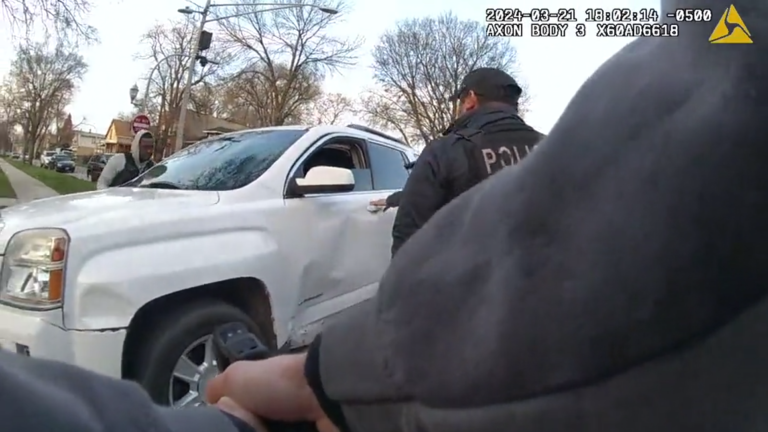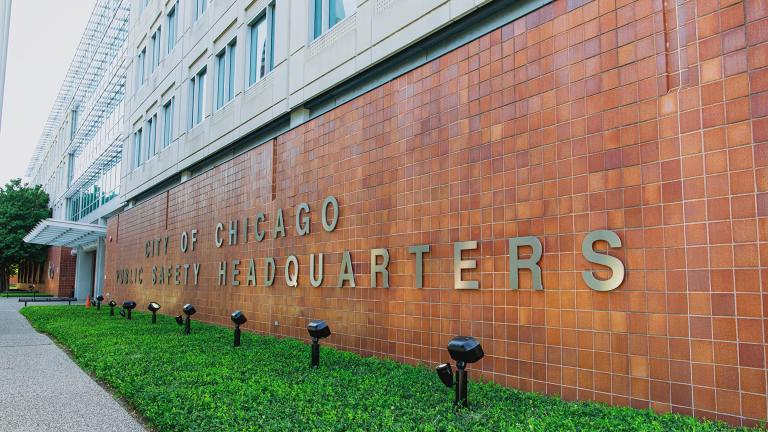The deadline is approaching for Mayor Brandon Johnson to decide whether to renew Chicago’s contract for the controversial technology known as ShotSpotter.
The system relies on microphones and sensors to identify the sound of gunfire and alert law enforcement.
Supporters say it’s a useful tool that helps Chicago police officers get to crime scenes faster. But critics say the technology is unreliable and contributes to over policing in communities of color.
Robert Vargas, associate professor of sociology at the University of Chicago and director of the UChicago Justice Project, says research that has been independently conducted across Chicago points to a product that does not deliver what it has promised.
“What makes the challenge and the discourse around this really hard is that SoundThinking is deploying a tactic that is common in industries that are trying to elude regulation, to move the goalposts and, and prevent cancellations of the contracts,” he said.
He adds that changing rhetoric over the technology’s purpose illustrates this.
Eddie Johnson, former Chicago police superintendent, defends the technology saying it has aided the work of officers on the ground.
“Before when we would get these calls without the ShotSpotter technology, we might get a phone call from a citizen that said, I got shots fired outside my house,” Johnson said. “Whereas ShotSpotter will take us to the exact location. Because when we knock on that door and ask a person where the shots come from, ‘I don't know, but I just heard them out here.’”
Despite this, there are concerns about using the alerts as a reason to over police neighborhoods — particularly in Black and Brown communities.
“CPD’s own data reflects that their police officers are using historical ShotSpotter alerts as the basis to create stops that they would otherwise not have probable cause to do,” Martinez said. “And so what this technology does is actually promotes mass incarceration, and is a real liability for the city.”
The current contract runs through Feb. 16, after being renewed twice since it began in 2018. Though Johnson campaigned on ending the contract, he has not indicated what he intends to do.
Ald. Brian Hopkins (2nd Ward) is in favor of signing a new contract, saying the technology will continue supporting Chicago police.
“We need to be going forward with our use of technology… If we do renew the ShotSpotter contract there’s some things that we can do that we’re not currently doing right now that will add value to that $10 million that we’re spending to analyze micro trends in small areas,” he said
Vargas says the city needs to broaden their approach to public safety and listen to communities.
“Police perspective is valuable,” Vargas said. “But when you look at violence interrupters, like when philanthropy or the public evaluates violence interrupters, they don't ask violence interrupters, ‘do you think this is good?’ No. There’s very, very rigorous experiments that all of these violence prevention programs that are subjected to you can't just base this solely on police expertise.”
The city's Community Commission for Public Safety and Accountability is holding a hearing on ShotSpotter technology on Thursday at 6:30 p.m. at St. Sabina Church.
A Safer City is supported, in part, by the Sue Ling Gin Foundation Initiative for Reducing Violence in Chicago.








